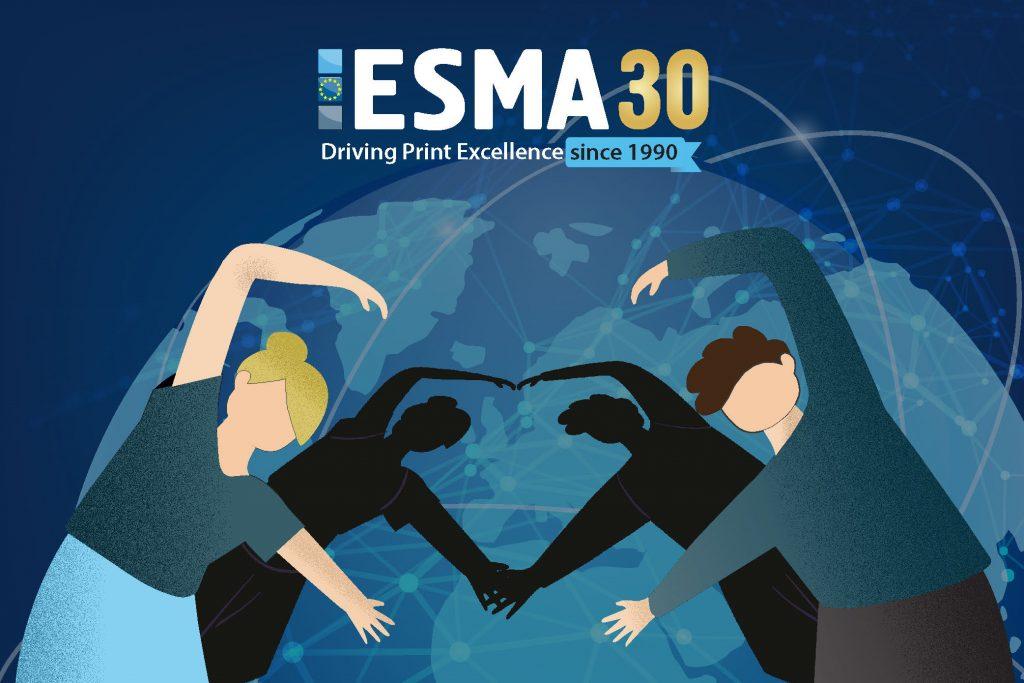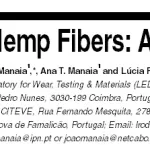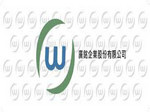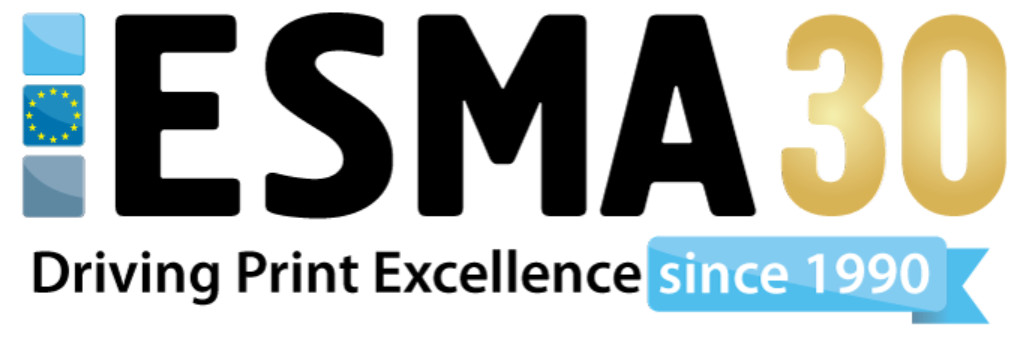 What began as a collective effort of Europe’s major screen printing suppliers, has grown and evolved to become the home of industrial printing in all its facets. Turning thirty in 2020, the European Specialist Printing Manufacturers Association (ESMA) represents the best in both screen and digital inkjet technologies, and looks with optimism into the next decade. Some of the key figures look back at their time with the association and share future outlooks.
What began as a collective effort of Europe’s major screen printing suppliers, has grown and evolved to become the home of industrial printing in all its facets. Turning thirty in 2020, the European Specialist Printing Manufacturers Association (ESMA) represents the best in both screen and digital inkjet technologies, and looks with optimism into the next decade. Some of the key figures look back at their time with the association and share future outlooks.
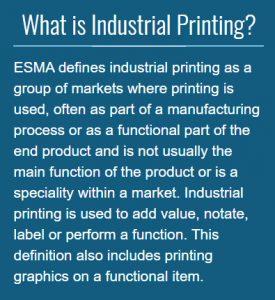 ESMA was founded in 1990 in the United Kingdom as a supplier-led initiative to stimulate the growth and potential of screen printing. Derek Down, then the General Secretary of FESPA accepted the additional responsibility of ESMA General Secretary and continued in this role until 2002 when Bryan Collings took over. “Working for ESMA was a privilege and introduced me to so many genuine business people in our specialist printing community”, recollects Bryan Collings, now the Publisher of Specialist Printing Worldwide, “The organisation has come of age over the last decade and now offers its members great networking facilities and marketing opportunities through its seminars. With my Specialist Printing Worldwide hat on, we are proud to be partners of such a great organisation as ESMA and look forward to a great future together.”
ESMA was founded in 1990 in the United Kingdom as a supplier-led initiative to stimulate the growth and potential of screen printing. Derek Down, then the General Secretary of FESPA accepted the additional responsibility of ESMA General Secretary and continued in this role until 2002 when Bryan Collings took over. “Working for ESMA was a privilege and introduced me to so many genuine business people in our specialist printing community”, recollects Bryan Collings, now the Publisher of Specialist Printing Worldwide, “The organisation has come of age over the last decade and now offers its members great networking facilities and marketing opportunities through its seminars. With my Specialist Printing Worldwide hat on, we are proud to be partners of such a great organisation as ESMA and look forward to a great future together.”
The Specialist Printing Worldwide magazine was launched in 2007 and this was also when ESMA moved to Belgium and appointed Peter Buttiens as the new CEO. He brought new enthusiasm and grew the organisation to where it is today. “As a member-based community it has always been a priority to serve our existing supporters but also to make ESMA attractive enough for new members and steer it towards industry innovations”, says Peter Buttiens, “The combination of the committee work and broader involvement from the team in conference development have positioned ESMA at the forefront of the European industrial printing sector. Screen and inkjet are the two pillars which carry the association and fuel our continuous search for new exciting technology applications. From industrial decoration to functional printing, we maintain an ever-expanding focus on various markets.”
“For over thirty years ESMA has successfully adapted and diversified through innovation and partnerships to continue to provide valuable services – not only to its membership – but also to the wider printing community through its ‘Knowledge Hub’ and industry-leading conferences. The membership may have changed over the years, but the focus of ESMA has always remained the same – to promote specialist printing processes, both screen and inkjet, with equal focus”, comments Debbie Thorp from Global Inkjet Systems, the current Chair of ESMA Board, and adds “On behalf of the Board and the membership I would like to take this opportunity to thank the ESMA team for all their efforts and dedication to maintaining so well the core ethos and goals of our association established 30 years ago.”
As a community of major industry players, as well as partner for a number of recognised research institutes, ESMA has established a community of professionals that help each other excel through education and collaboration. Currently, the association counts 67 member companies, with Zeller+Gmelin and Ricoh as the latest additions. “Ricoh decided to join ESMA to engage in the strong network supporting both screen and digital printing. As a technology provider to the inkjet industry, Ricoh industrial print division wants to help customers to generate all possible benefits of going digital, particularly in the textile sector. Contacts facilitated via ESMA will help Ricoh understand the detailed needs of the market”, says Dominiek Arnout, Head of Business Development EMEA at Ricoh Europe.
Since ESMA’s inception, industrial printing has come a long way and the association has been a consistent supporter in this journey – through its committee meetings and cross-technology expertise, through technical and networking events or through professional peer advice regarding health, safety and environmental legislation. “How much has changed in our industry during these thirty years? Nearly everything!”, exclaims Walter Frick, ex-Marabu and one of ESMA’s ‘founding fathers’, “The technology has permanently been improved, the machines and printing materials have completely changed, and the markets have moved from graphic applications towards many high-tech industrial operations. But the fact that ESMA members are working together for the benefit and further growth has not changed since the very beginning in 1990, when we started to create a platform where all suppliers, competitors or not, could meet and discuss. Good luck for the coming 30 years!”
Textile Division of ESMA Looking at the current growth rate of digital textile, and considering that screen printing is still the main solution for garment applications, we recognise the need to bring together manufacturers and suppliers in the printing side of textile. Digital textile printing has been around for over 20 years now but it has never played a major role in this conservative market. There is however a visible shift from analogue to digital taking place in segments such as apparel or home textiles. Various estimates expect a growth of digital textile printing between 6% and 20% in the next decade. A new association can become a global voice for that entire market and can enable growth and strengthen the industry.We understand the Textile Division of ESMA as the home for the textile printing manufacturers: suppliers, printers and even brand owners. Our target group includes all manufacturers of products used in textile printing workflow (digital or screen). This involves also all products and supplies that support the handling of fabrics (pre- and post-treatment). The textile printing applications can be soft signage (to a lesser degree), fashion, apparel, sports and swimwear, home textiles, technical textiles and home decor. We will focus first on suppliers of products for textile printing, and in the next step on printers, value added resellers and maybe even brands. It is important to cover the whole supply chain involved, in order to maximise the market change. Our goal is to create a united community focused on improving and guiding changes in the textile printing industry. Change management in general will be important in the textile sector and printing will play an important part in it. The core focus and working area will be Europe, but the rest of the world will also be included in our activities. The association wants to bring together the textile printing industry, as well as all those involved in the workflow and all side processes required in combination with print. The rapid change in ecological and social awareness impacts textile markets, from business models to production shifts, calls for optimisation of textile printing and creates opportunities. Our association wants to look at all critical factors and global trends which influence the textile market condition today and in the nearest future: “fast fashion”, “cleaner” businesses, quality and sustainability concerns, personalisation… Moreover, the ongoing change to digital demands a higher level of education on using the new technologies: understanding colour management, specifics of inkjet and its implementation into existing business concepts. Our engagement in textile printing As the importance of printing grows, we currently see no textile association which would focus on that aspect. Textile printing is a market with its own dynamics. Applications such as apparel or fashion are transforming to a much shorter supply chain with shifting responsibilities. In general, the market evolves in two directions: cheap production in South-East Asia and high-end smaller series in the Western world. The advances in digital printing technology are reaching a tipping point and therefore a dedicated association could offer guidance on several levels: technology, health, safety and legislation advice, as well as business support for diverse applications such as soft-signage, home textiles, fashion, apparel, garment, technical textiles or smart textiles.
Focus Areas of the Textile Division of ESMA Sustainability: We observe a growing challenge with the increasing installations numbers of bigger and faster digital textile printers. Bad prints, wrong substrates, unsatisfactory quality, artefacts, wasted jobs… The loss suffered amounts up to hundreds of million dollars per year globally and has a direct effect on the ROI of printers who made the investment. Standardisation: The workflow standardisation remains an issue even for the biggest companies. After an investment in multi-million-euro-worth equipment the margin for error should be close to zero. (Six Sigma). However, pitfalls still arise and there are not really solutions in place which would guarantee self-updating and self-correcting systems (machine learning) keeping a closer watch on the entire workflow. Colour management: In commercial printing, standardisation has been established quicker and tighter because it was a less complex environment than textile printing. In the last years, many switch to newer and more advanced equipment and the period between the two installations poses challenges. Re-runs of older print jobs become a nightmare due to colour mismatch. This is one example of many, but the problem is larger and can only be solved with a broader approach, supported by a larger group of suppliers and printers. Regulations: Textile printing is highly chemistry-related process which includes advanced handling for pre-treatment, inks, substrates and post-treatment. Especially clothing, upholstery and other skin contact products are demanding in terms of following the correct procedures. The dynamically changing regulations, ecology and sustainability standards are critical topics within the growing segment of printed textile production.
As the current general commitment to safe events does not call for extensive celebrations, ESMA has postponed its 30th anniversary General Assembly to 2021 when the occasion can be marked with strong member attendance. More details will follow later this year.
ESMA: Sint-Jorisveld 44, B-3390 Sint-Joris-Winge, Belgium | T + 32 (0)16 894 353 | F + 32 (0)16 434 971 | info[at]esma.com
